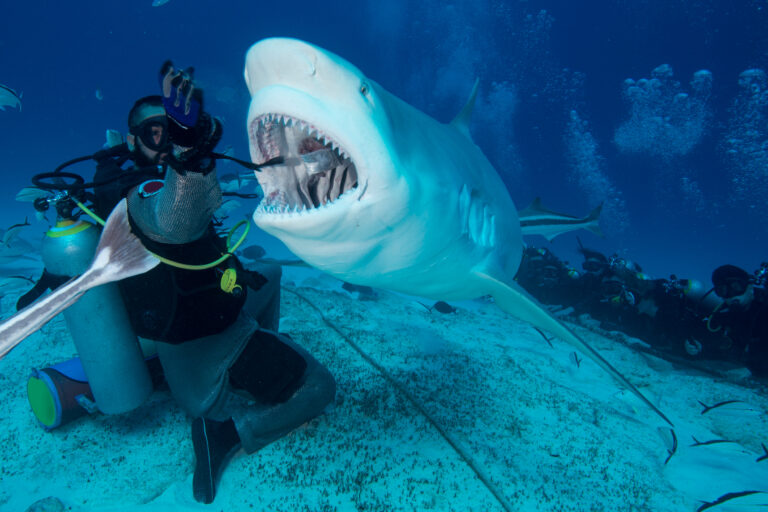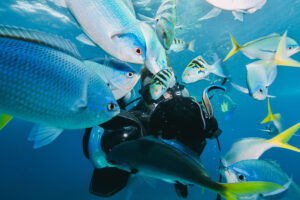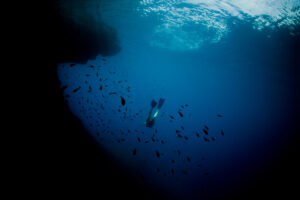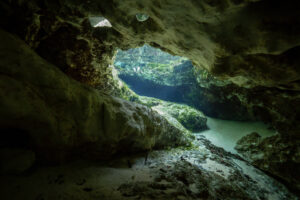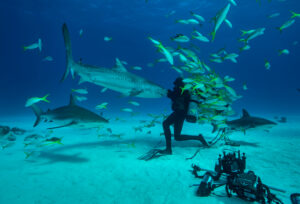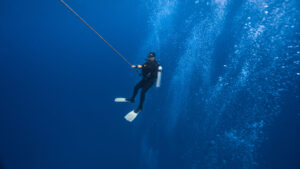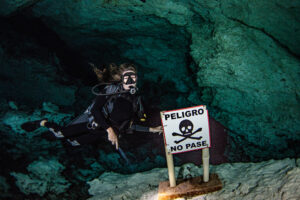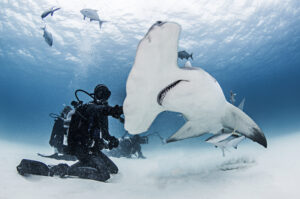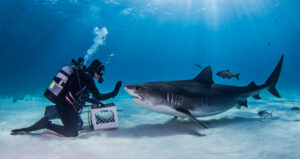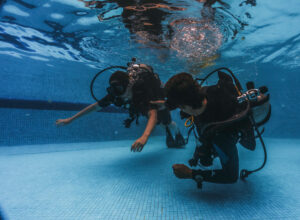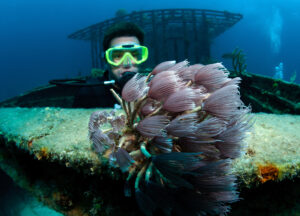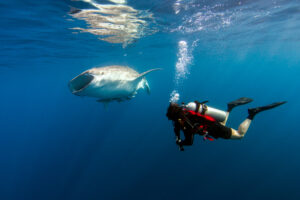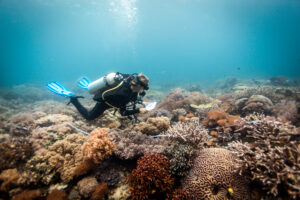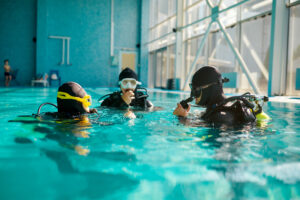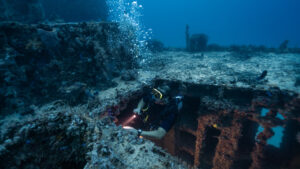What is a Dive Operator?
A dive operator is a professional entity responsible for organizing and facilitating scuba diving activities for individuals and groups. Dive operators play a crucial role in ensuring safe, enjoyable, and educational experiences for both novice and experienced divers. They provide a wide range of services, including equipment rental, guided dives, training courses, and logistical support for dive trips. As central figures in the scuba diving industry, dive operators are essential for maintaining high standards of safety and environmental stewardship. Their expertise and resources enable divers to access and enjoy underwater environments that might otherwise be difficult to reach or navigate.
Historical Development
The role of the dive operator has evolved significantly since the early days of scuba diving. In the mid-20th century, when scuba diving was gaining popularity, the need for organized support and professional guidance became apparent. Early dive operators were often passionate divers who saw an opportunity to turn their hobby into a business. They provided basic services such as equipment rental and guided dives, primarily catering to a small community of diving enthusiasts.
As scuba diving technology advanced, so did the services offered by dive operators. The development of more reliable and sophisticated diving equipment in the 1960s and 1970s allowed for deeper and longer dives, increasing the demand for professional dive operators who could ensure safety and provide expert guidance. This period also saw the establishment of the first professional diver training organizations, such as PADI (Professional Association of Diving Instructors) and NAUI (National Association of Underwater Instructors), which further professionalized the industry.
The growth of tourism in the latter part of the 20th century had a profound impact on the dive operator industry. Coastal regions and tropical islands around the world became popular diving destinations, leading to a surge in the number of dive operators. These operators not only provided diving services but also contributed to the local economies by attracting tourists and creating jobs. Today, dive operators are found in almost every part of the world, from the coral reefs of the Caribbean and the Pacific to the cold waters of the Arctic and Antarctic.
Types of Dive Operators
Dive operators can be broadly categorized into several types, each offering unique services tailored to different kinds of divers and diving experiences. Resort-based dive operators are commonly found in tourist destinations and typically operate as part of larger hotels or resorts. These operators provide convenient access to diving activities for vacationers, often including beginner courses and easy access to nearby dive sites. Resort-based operators are ideal for those looking for a hassle-free diving experience combined with other leisure activities.
Liveaboard dive operators offer a different kind of adventure, providing extended diving trips aboard specially equipped boats. These operators cater to more experienced divers seeking to explore remote and less accessible dive sites. Liveaboard trips can range from a few days to several weeks, allowing divers to immerse themselves in their diving activities without the interruptions of daily life. These operators are often praised for their ability to reach pristine diving locations and provide comprehensive diving experiences.
Independent dive operators are usually smaller, locally-owned businesses that offer a more personalized diving experience. These operators often have intimate knowledge of the local dive sites and can provide customized services tailored to the preferences of their clients. Independent operators can be found in both popular and off-the-beaten-path destinations, providing a range of services from casual dives to technical diving expeditions.
Geographical variations also influence the specialization of dive operators. For example, operators in the Red Sea may focus on vibrant coral reefs and wreck diving, while those in the Mediterranean might specialize in historical shipwrecks and underwater archaeology. In regions like Florida or the Yucatan Peninsula, cave diving operators cater to the adventurous divers looking to navigate underwater cave systems. Each type of dive operator offers a unique perspective and set of services, ensuring that there is something for every kind of diver.
Roles and Responsibilities
Dive operators hold a wide range of responsibilities that ensure the safety and enjoyment of their clients. One of their primary duties is the maintenance and rental of diving equipment. This includes regular inspection and servicing of tanks, regulators, masks, fins, and wetsuits to ensure they are in good working condition. Proper equipment maintenance is crucial for preventing accidents and ensuring that divers have a safe experience underwater.
Planning and organizing dives is another key responsibility of dive operators. This involves selecting appropriate dive sites based on the skill level and interests of the divers, as well as considering environmental factors such as tides, currents, and weather conditions. Dive operators must also brief divers on the specifics of each dive, including entry and exit points, maximum depths, and potential hazards. This preparation helps to ensure that dives are conducted safely and efficiently.
Safety procedures are at the core of a dive operator’s responsibilities. This includes conducting thorough pre-dive checks, providing safety briefings, and ensuring that all divers are aware of emergency protocols. Dive operators are trained to handle a variety of emergency situations, from equipment malfunctions to medical issues such as decompression sickness. They carry essential safety equipment, such as first aid kits and oxygen tanks, and are often trained in first aid and CPR.
Beyond safety and logistics, dive operators also offer a range of additional services. Many provide training courses for divers of all levels, from beginner Open Water Diver certifications to advanced and specialty courses such as wreck diving or underwater photography. These courses are conducted by certified instructors who follow standardized training protocols. Dive operators may also offer guided tours, providing expert knowledge about the local marine life and underwater features.
Legal and environmental responsibilities are also significant aspects of a dive operator’s role. They must adhere to local and international regulations regarding diving practices and environmental protection. This includes respecting marine protected areas, avoiding damage to coral reefs and other sensitive habitats, and promoting sustainable diving practices among their clients.
Licensing and Regulations
To operate legally, dive operators must obtain various certifications and licenses. These requirements can vary significantly depending on the country and region in which they operate. At a minimum, dive operators need to be certified by recognized diving organizations such as PADI, NAUI, or SSI (Scuba Schools International). These certifications ensure that the operator and their staff have the necessary training and skills to conduct safe and professional diving activities.
In addition to certifications, dive operators must comply with local regulatory frameworks. This often includes obtaining business licenses, adhering to health and safety regulations, and meeting environmental protection standards. For example, in many areas, dive boats must be inspected regularly to ensure they meet safety requirements, and dive operators must have liability insurance to protect against accidents and injuries.
Global standards and guidelines also play a role in regulating dive operations. Organizations such as the World Recreational Scuba Training Council (WRSTC) set international standards for diving education and safety. These standards are designed to ensure a consistent level of quality and safety across the industry, regardless of location. Dive operators who adhere to these standards demonstrate their commitment to providing safe and high-quality diving experiences.
Compliance with safety and environmental protection standards is a critical aspect of a dive operator’s responsibilities. This includes following guidelines for safe diving practices, such as limiting the number of divers per guide, monitoring dive times and depths, and ensuring proper ascent rates. Environmental protection standards often involve measures to minimize the impact of diving activities on marine ecosystems, such as using mooring buoys instead of anchors and promoting responsible interactions with marine life.
Economic Impact
Dive operators play a significant role in the economic landscape of many coastal and island communities. They contribute to local economies by attracting tourists who spend money on a variety of services, including accommodation, food, transportation, and souvenirs. This influx of tourism revenue can have a positive impact on regional economic development, creating jobs and supporting local businesses.
The economic significance of dive operators extends beyond direct tourism revenue. They often engage in partnerships with other local businesses, such as hotels, restaurants, and tour operators, creating a network of economic activity that benefits the entire community. For example, a dive operator might collaborate with a local hotel to offer dive-and-stay packages, providing a convenient and attractive option for tourists while boosting business for both the dive operator and the hotel.
However, dive operators also face economic challenges. The scuba diving industry is highly dependent on external factors such as weather conditions, global economic trends, and environmental health. Natural disasters, economic downturns, and environmental degradation can all negatively impact dive operations and reduce tourist numbers. For example, coral bleaching events can deter divers from visiting affected areas, leading to a decline in business for local dive operators.
In response to these challenges, many dive operators are diversifying their services and seeking new markets. Some are expanding their offerings to include other water sports and activities, such as snorkeling, kayaking, and eco-tours. Others are focusing on niche markets, such as technical diving or underwater photography, to attract specialized clientele. By adapting to changing market conditions and diversifying their services, dive operators can mitigate economic risks and sustain their businesses.
Safety and Risk Management
Safety is a paramount concern for dive operators, and effective risk management is essential to their operations. Dive operators implement a range of safety measures to protect their clients and staff. These measures include thorough pre-dive briefings, regular equipment checks, and strict adherence to diving protocols. Pre-dive briefings are crucial for informing divers about the specifics of the dive, potential hazards, and emergency procedures. By ensuring that all divers are well-informed, dive operators can reduce the risk of accidents and enhance the overall safety of the diving experience.
Equipment maintenance is another critical aspect of safety management. Dive operators regularly inspect and service their equipment to ensure it is in good working condition. This includes checking tanks, regulators, masks, and other gear for any signs of wear or damage. Properly maintained equipment is essential for preventing malfunctions and ensuring that divers have a safe and enjoyable experience underwater.
Risk management also involves preparing for and responding to emergency situations. Dive operators are trained to handle a variety of emergencies, from equipment failures to medical issues such as decompression sickness. They carry essential safety equipment, such as first aid kits and oxygen tanks, and are often trained in first aid and CPR. In the event of an emergency, dive operators must act quickly and efficiently to ensure the safety of their clients.
Effective communication is a key component of risk management. Dive operators must maintain clear and open lines of communication with their clients, ensuring that any concerns or issues are addressed promptly. This includes providing clear instructions, answering questions, and addressing any problems that arise during a dive. By fostering good communication, dive operators can enhance safety and reduce the likelihood of misunderstandings or accidents.
Key Takeaways
Dive operators are essential to the scuba diving industry, providing crucial services that ensure safe, enjoyable, and educational experiences for divers. They come in various types, including resort-based, liveaboard, and independent operators, each offering distinct services and catering to different needs. Their roles encompass a wide range of responsibilities, from equipment maintenance and dive planning to safety management and legal compliance. Dive operators also play a significant economic role, contributing to local economies and adapting to various market conditions. Their commitment to safety and environmental stewardship underscores their importance in the scuba diving community, ensuring that divers can explore and appreciate underwater environments responsibly and securely.

